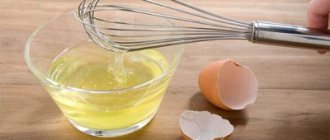Citric acid is a natural preservative, so many people believe that lemon juice cannot spoil either in the refrigerator or at room temperature. This is wrong. If lemon juice is stored incorrectly, nothing will save it from spoilage.
Although citric acid slows down the growth of bacteria, they can still appear and the juice will lose its freshness. Juice can also spoil due to pathogens such as yeast or mold. True, knowing how to store it, you can keep it fresh longer.
Features of storing lemon in the refrigerator
To keep citrus in the refrigerator for a long time, it is recommended to buy slightly unripe fruits that have the following characteristics:
- when pressed, the lemon should spring slightly and not be soft;
- The peel of an unripe product is matte, while that of a ripe product becomes shiny;
- the skin should not show signs of damage, disease, wormholes or dark spots indicating frostbitten citrus.
At room temperature, fresh fruits can be kept for about 14 days, and in a refrigerator, their freshness is maintained for up to 2-3 months.
Attention! It is better to store the product on a side shelf or in the vegetable compartment, since the ideal storage temperature for lemon is 6-8 degrees. When it decreases, it begins to quickly deteriorate.
To extend the shelf life of whole citrus in the refrigerator, wrap it in paper towels or thick paper, which will retain moisture, prevent drying and give the fruit a fresh look. Such packaging will save neighboring fruits from spreading rot to them when it occurs. Plastic bags have the opposite effect, so they are not used when storing citrus fruits.
You can increase the shelf life of the product by applying sunflower oil to the skin, which protects the fruit from drying out. Then they are placed in a plastic container with a lid and put in the refrigerator.
After peeling, you can store lemons in the refrigerator in the following ways:
- fill the jar with fruits to the brim, which blocks the penetration of air deep into the jar, close with a lid;
- If there is not enough product, it is sprinkled with sugar or filled with honey. These components will act as preservatives.
Placing them in a deep container with water helps increase the shelf life of lemons by 7 days. The fruits are completely filled with liquid, and the container is closed with a lid. The water is changed once every 2 days. Citrus fruits are washed every time.
Shelf life of freshly squeezed juice
It is better to take freshly squeezed juice immediately without storing it. In the absence of such a desire, it is recommended to observe the established expiration dates. For example, know how long freshly squeezed orange juice can be stored, thereby providing yourself with an invigorating and sophisticated taste.
To evaluate the quality of a product after a short period of use, it is necessary to study it:
- smell (a sharp sour smell with notes of wine indicates unsuitability);
- color (at the end of the shelf life, the liquid becomes cloudy, darkens, and produces sediment);
- appearance (the drink forms bubbles, foam, hissing);
- taste (spoiled liquid has an unpleasant sourness).
Note! The more sugar in fruits and vegetables, the faster the fresh juice ferments. The more vitamin C, the longer the drink lasts.
Rules for storing cut lemons in the refrigerator
Cut fruits begin to dry out due to rapid loss of moisture. The following storage options will help slow down this process and extend the shelf life of citrus by 5-7 days:
- wrap the lemon slice with a napkin soaked in vinegar;
- place it with the cut side on a plate, onto the bottom of which a few drops of vinegar are first poured, sugar is poured (for further use with tea) or salt (if the lemon is intended for sauce, cold appetizers);
- brush the cut area with whipped egg white;
- leave the lemon in a glass, which is tightly wrapped with cling film;
- Place the citrus in a container with water, cut side up. The liquid level should be just below the cut area.
It is recommended to store lemon slices in candied form. Thin slices of citrus are placed in a plastic container and each layer is sprinkled with sugar.
Attention! The ideal container for placing the cut fruit is lemongrass, which helps maintain freshness for up to 1 week. The cost of such dishes depends on the material of its manufacture, size and quality.
Freezing
Contrary to the established myth that vitamin C is destroyed at too low temperatures, freezing allows you to preserve this powerful antioxidant for the longest possible time without losing its beneficial properties. Before storing lemons for a long time, you need to thoroughly rinse them with a brush and pour boiling water over them for a couple of minutes. This will help remove the thin waxy film that covers the fruit before transportation. It protects exotic fruits from spoilage during their journey from the lemon tree to the consumer. After drying the peel, you can grind the lemons along with it, because it is the peel that is rich in most of the beneficial substances that characterize the value of the fruit. Having decided how to store lemons at home in the refrigerator, you can start cooking.
If you freeze lemon juice, you can squeeze out the fresh juice, pour it into ice cube trays and put them in the freezer. Once the cubes are ready, you need to transfer them to a plastic container with a lid or a plastic bag with a zipper. You can also freeze beautiful cubes, which will contain not just juice, but juice with lemon pulp.
The zest, crushed with a grater, can also be frozen in a separate packaging bag so that it does not freeze, and then pour it into a container. It is perfect for sprinkling desserts and any dishes. Restaurants sometimes freeze whole lemons and then grate them before serving and sprinkle them onto dishes.
But how to preserve lemon for a long time in order to decorate a cocktail with a beautiful slice? To do this, cut beautiful pieces and place them on a packaging bag in rows, with small intervals (so that the fruit does not freeze). Then the rows of slices are rolled up and the compact package is sent to the freezer. After freezing, the slices are carefully removed and placed in a container. The question of how to preserve lemons for a long time in the form of lemon slices or small sectors (which can easily be broken off if necessary) will be resolved.
Preparing lemons for the winter with storage without refrigeration
In case of absence, breakdown of the unit or the need to preserve too many fruits, use the following methods for storing citrus:
- In sand. It is pre-calcined to exclude the presence of microbes. Then pour it to the bottom of the container. Washed and dry lemons are wrapped in parchment paper, and then laid on top, sprinkled with sand again, the layer thickness is 3 cm. The container is covered and left in the cellar or basement.
- In wax. The storage option in paraffin paper or pure wax is troublesome and expensive, but effective. Each citrus is tightly wrapped in paper and placed in a wooden, plastic or cardboard box. The second option requires preliminary melting of the wax in a steam bath. Then it is applied in a thin layer and after hardening the fruits are sent to a container. The wax forms a protective layer on the surface of the lemons, but to maintain their freshness, the container must be well ventilated.
- In bottles with tightly closed lids. Containers must be thoroughly washed, sterilized and dried. After filling, place a candle on top and light it. When the air comes out, it goes out, the container can be put away in a storage place.
- Drying. Cut the citrus into slices, place them on a towel and leave for 3-5 days. You need 2-3 rubles daily. Turn the lemon slices over to dry thoroughly. To speed up this process, use an oven. The slices are placed on a wire rack and dried at a temperature of 50-60 degrees for 12-24 hours. Store dried lemons in glass containers or paper bags in a cool, dry place.
If the citrus will be used in the future for preparing sauces, meat and fish dishes, then they can be stored in salted water. The fruits are placed in jars, filled with prepared liquid, sealed and put in a cool place.
To keep lemons fresh, you must observe the following conditions for storing them without refrigeration:
- no contact with direct sunlight;
- air temperature – 6-8 degrees;
- dryness, cleanliness of the container and storage area;
- when stored on the balcony (in conditions of a strong drop in temperature), the container with lemons is wrapped in a warm blanket;
- the dried peel is reanimated by placing the lemon in hot water for 2-3 minutes.
Compliance with such requirements will extend the shelf life of lemons and ensure a supply of fresh product for the whole winter.
LiveInternetLiveInternet
Lemon and juice - how to store?
How to store lemons in the refrigerator?
To preserve lemons for as long as possible, you need to choose ripe, undamaged fruits. It is worth paying attention to the hardness of the fruit; a soft lemon may indicate that it is frostbitten.
The ideal storage temperature is from 6 to 8 degrees Celsius; if the temperature is lower, the lemon can quickly spoil. At the right temperature, lemon can be stored in the refrigerator for several months.
To retain moisture, you can use parchment paper or, in extreme cases, newspaper, then the fruits will look fresher. You should not store lemon fruits in plastic bags for a long time; the fruits will quickly begin to rot.
How to keep lemons fresh?
In order to keep lemon fruits fresh for as long as possible, it is necessary not only to choose them correctly, but also to select the desired temperature regime. This can be either a refrigerator or a cool room with a temperature of 6-7 °C.
If you have a large number of lemons, you can wrap them in tissue or parchment paper, then they will not dry out, and in case of illness or damage to the lemon, rot will not be transferred to neighboring fruits. You can also grease the fruits with vegetable oil, place them in a plastic bag and place them in a cool place. The oil film will prevent the fruits from drying out. Small quantities of lemons can be stored in a tightly sealed container.
How to preserve lemons in sugar?
Another old way to store lemons at home is to candied lemon fruits. For this you will need a glass jar and thick paper. You can peel the lemons and put them in a jar entirely, covering them with sugar; you can cut the fruits into slices without removing the peel. In both cases, we try to fill the jar to the brim. It is better to seal the jar with thick paper, but you can also use a plastic lid. If you want the candied lemon to last for several months, then you need to add lemon and sugar as the slices settle, so that the jar is filled to the brim. Store lemon in sugar in a cool, dark room.
How to store lemon juice?
If you are planning to prepare lemon juice, then you will need bottles with twists or jars for this. For long-term storage of prepared juice, containers and lids must be sterilized. The juice is poured to the brim and sealed. It should be stored in a cool place, protected from light. Another way, without sterilization, is to leave a little space while pouring the juice into the dishes and pour in almond or olive oil. If the juice is prepared for cooking, then sunflower oil is also suitable. To improve your health, it is better to drink freshly squeezed lemon juice; such juice will retain the largest amount of vitamins and minerals. You can also store lemon juice in the freezer by pouring it into special bags.
How to preserve cut lemon longer?
A cut lemon fruit loses moisture faster and may dry out. To better preserve it, you can use several methods:
· Drop a drop of vinegar into a saucer and place the lemon in it, cut side down, or wrap the cut side with a napkin soaked in vinegar;
· Brush the cut area with whipped egg white;
· Place the lemon on a saucer, cover with a glass and place in the refrigerator, or after placing in a glass, wrap tightly with cling film to prevent air from entering;
· Depending on what you will use the lemon for, place it cut side down on a saucer with salt or sugar and put it in a cool, dark place;
· Place the lemon in a container with water, cut side up, the water should not touch the cut;
· Buy a special device for storing cut lemons - a lemon maker.
How to preserve lemon for the winter?
A small amount of lemons can be stored in the refrigerator, but if for some reason you need to store a lot of fruits, a universal method for storing fruits and vegetables - sand - is perfect. Due to its hygroscopicity, it will not allow the fruits to wither and dry out.
For better preservation, you can wrap the fruits in paper. Storage temperature should be within 6-8 °C. In addition, lemons wrapped in paper are stored well in sawdust in a cool, dark place. You can also preserve some of the lemons. Place the well-dried fruits in a dry, sterilized bottle, light a piece of candle, and immediately close it. The candle will go out when there is no oxygen left in the jar. In this way, the fruits can be stored for a very long time.
How to preserve lemon zest?
For fans of culinary art, the topic of preserving lemon zest is relevant. There are several ways to make and store this healthy and tasty product. It is important to remember that only the yellow part of the peel is used to prepare the zest; the white part gives an unpleasant bitterness.
To prepare the zest in sugar, wash the lemon in warm water with a brush. Take a not very large grater and carefully remove the top layer of lemon with it. Place the zest in jars and add sugar at the rate of 1 part zest to 2 parts sugar.
To prepare dried zest, we use either a knife or a vegetable slicer. Cut strips of zest, place them on paper in the sun and cover the top with paper or gauze. The room should be well ventilated. Dry zest should be stored in glass containers.
How to store lemon without refrigeration, at room temperature?
It is important to remember that without refrigeration, the shelf life of lemons is significantly reduced. If the fruits are fresh and healthy, their shelf life can be up to two weeks. You can extend this period by coating the fruits with vegetable oil.
You should also remember that it is better to keep lemons away from moisture, then they will not rot. You should not keep lemons at room temperature in plastic bags, they will quickly spoil. You should also avoid exposure to direct sunlight. If the lemon skin begins to dry out, you can always “reanimate” it by placing it in boiling water for a couple of minutes.
Where to store ripe lemon?
For a fully ripe lemon, two basic conditions are necessary - a dark, cool room and a minimum of moisture. The optimal storage temperature for such lemons is 6-8 °C. Both basements and cellars, as well as refrigerators, are suitable for this. It is important to ensure that the room is always dry.
· You can place the fruits in sand, or wrap them in a layer of paper;
· You can place ripe lemons in well-dried bottles and close the lids tightly to prevent moisture from entering;
· Lemons will be preserved well in the autumn-winter period on a glazed balcony. In severe frosts, they will need to be wrapped in old warm clothes.
How to store lemons in jars?
There are several ways to store lemons in jars:
· Sterilize the jar and dry it, place washed and well-dried lemons in it, seal it so that no moisture enters. Place the jars in a cool, dark place;
· Place the fruits in a clean, sterilized jar, place a candle stub and carefully close with a sterile lid. Store in a cool, dark place;
· Place peeled lemons in a glass container and sterilize in a water bath, gradually adding peeled lemons until the bottle is filled. Roll up the lid tightly. Store in a basement or cellar.
How to store dried lemons?
Another great way to store lemon is to dry it. If you occasionally drink tea with lemon, and the cut fruit disappears lonely in the refrigerator, then this method is for you. The temperature should be 50-60C, the drying process will take approximately 5-6 hours. Dried lemons can be stored either in glass containers or in paper bags in a dry, dark room.
How to store lemon without zest?
It is better to store peeled lemon in the refrigerator in a glass jar. The main condition for safety is to limit the flow of air. It is better if the jar is filled to the brim. Otherwise, it is better to use sugar or honey as preservatives.
If you plan to use lemon for cooking meat or fish dishes, you can use salt. The main storage conditions are suitable temperature conditions and the absence of direct sunlight. You can also place peeled lemon in the freezer and use it in cooking.
How to properly preserve lemons in a jar of water?
To keep the lemon fresh for a long time, you can place it in a jar of water. Water must completely cover the fruit. Store the jar of lemon in the refrigerator at a temperature not lower than 6 degrees. Lemon is a heat-loving plant, and at lower temperatures it freezes and becomes soft. The water in the jar with lemon must be changed daily; after removing the old water, it is better to rinse the lemon under warm, running water. With this storage method, lemon is not only stored well and for a long time, but also retains its beneficial properties to the maximum.
How to brew tea with lemon to preserve vitamins?
Since ancient times, the tradition of drinking tea with lemon in winter has entered our lives. Whether your body is weakened or you have a seasonal cold, this drink is the most affordable and effective remedy that is always at hand.
In addition, morning tea with lemon tones and will help you lift your mood and get rid of the blues. But not everyone knows how to properly make tea with lemon in order to optimally preserve its beneficial properties.
1. The main condition is not to throw lemon into fresh boiling water;
2. Heat treatment partially destroys beneficial microelements and vitamins;
3. It is better to add a slice of lemon when the temperature of the tea drops to 60-70 degrees, then this drink will not only be tasty, but also as healthy as possible.
Source https://howtostore.ru/lemon-in-questions-and-answers/
Shelf life of lemon water
Drinking this drink daily brings great benefits to the body. Citrus contains vitamins and minerals that have a positive effect on the digestive, cardiovascular, immune and nervous systems. Water with lemon helps to lose excess weight, normalizes metabolism, improves psycho-emotional state, cleanses the liver, and slows down the aging process.
For a single dose, it is enough to squeeze the juice from half the fruit into a glass of clean warm water (temperature within 25-35 degrees). It is not recommended to drink more than 0.2 ml of the drink at a time, especially for people with gastrointestinal dysfunction. Usually it is drunk in the morning on an empty stomach.
Water with lemon loses its beneficial properties during storage, so it is prepared immediately before use.
Attention! If the recipe contains ingredients such as ginger, mint, cucumber, the shelf life of the drink in the refrigerator increases to 12-24 hours.
Application in dietetics
Due to its low calorie content and high biological activity, lemon juice is also present in many diets. The acids of this drink speed up metabolism, promote the breakdown of existing fats in body tissues and prevent new deposits.
One of the effective and quick methods of losing weight is the lemon diet. This is evidenced by reviews of those who have lost weight on thematic Internet forums. But you cannot “sit” on such a diet for more than two days: this can lead to serious health problems.
To use this diet to lose 5 kg in two days, you need to give up food during this time and drink a special drink. To prepare it you need the juice of 7 lemons, a tablespoon of honey and a teaspoon of ground hot red pepper. The resulting mixture of lemon juice with pepper and honey must be diluted with 1.5 liters of warm boiled water.
How long does lemon juice last?
Preparing the drink for the winter is carried out in the following ways:
- Sterilize washed jars and lids, pour squeezed lemon juice into them to the brim and roll them up. Transfer the containers to the cold. When pouring juice, you can add a little almond or olive oil. If it will be used for cooking, then sunflower will do;
- Lemon juice is poured into food containers, bags or ice trays and left in the freezer. Used for cocktails.
The steps to obtain the drink must be performed quickly, because the components of lemon are very volatile. Also, when squeezing juice, it is recommended to use special devices that prevent contact of citrus with metal, as it contributes to the destruction of beneficial substances.
Possible harm
No matter how beneficial lemon juice is, for all its benefits, it can also cause harm to health. Due to the low pH and irritating properties of organic acids, this product is not recommended for ingestion:
- nursing women;
- young children;
- people with allergies, including non-food allergies;
- for acute inflammation of the mucous membranes of the mouth, throat or esophagus;
- patients with peptic ulcer;
- for psoriasis.
Absolute contraindications to drinking a drink from this citrus include any pathology of the pancreas. This organ is very sensitive to organic acids and essential oils contained in lemon juice, so it is prohibited for both acute and chronic pancreatitis.
Conditional contraindications to drinking a drink made from these citrus fruits include pregnancy. At this time, the drink can only be consumed in diluted form and for strict medical reasons.
If you drink lemon juice or rinse your mouth with it every day, it can damage your teeth enamel. To avoid contact of the juice with the tooth surface, you must drink this drink through a straw.
Even healthy people should not drink lemon juice on an empty stomach: it is aggressive to the gastric mucosa.
It should be used with great caution as an ingredient in cosmetic home remedies (scrubs, masks, lotions, creams). When applied to the skin of the face, avoid the periorbital area: contact with the eyes may cause a burn to the cornea or mucous membrane.
How to store lemon with sugar without refrigeration
Candied fruits are often used in the preparation of desserts. They can be stored whole without skin or in the form of slices. The first method involves doing the following:
- peel lemons;
- put in a sterilized jar, filling it to the top;
- covered with sugar;
- cover with a plastic lid or thick paper;
- leave the jars in a cool, dark place.
If you decide to store candied slices, then cut the lemon into slices up to 5 cm thick. Place them in a jar, sprinkling sugar on all layers. Cover with a lid and wait 5 days for it to dissolve.
Store containers in a cool place, adding components as they settle. In winter, they can be left on the balcony, provided that the temperature does not drop below 0 0C. The candied product is stored for 6 months.
Helpful information
To ensure that carrot juice is stored as long as possible and does not spoil, you need to take into account the following information:
- To get the maximum benefit from the drink, you need to use fresh vegetables. The best time to make juice is September and October, since the harvest is carried out in the fall.
- The drink will not ferment in the refrigerator if you squeeze it from healthy root vegetables. Rotten and diseased carrots are not suitable for this purpose.
- You need to freeze juice in such volumes as can be consumed at one time. You cannot put it in the freezer a second time.
- The best fresh juice comes from bright orange fruits. It indicates a large amount of carotene.
- Carrot juice goes well with other freshly squeezed drinks. It can be beetroot, pumpkin, orange, apple and even cucumber juice.
- If the concentration of the drink is too high, it can be diluted with boiled water. In order not to destroy the vitamins, it must be cooled first.
You will find a lot of useful information about storing carrots in this section.
Can it be frozen?
If the juice is to be frozen, for its preparation you need to choose those vegetables that have reached the peak of ripeness. They start pouring it without delay.
Step-by-step algorithm of actions:
- Peel and rinse the carrots and pass them through a juicer.
- If the final product contains a lot of pulp, it must be removed by straining the drink through a sieve.
- Pour the juice into plastic bottles. Once filled, squeeze them slightly to release the air. Close the container with a lid.
- Place the juice in the freezer. If it works at full capacity, it will freeze within 3 hours.
The drink is frozen in its pure form; there is no need to add preservatives or other chemicals to it.
It is better to defrost the juice gradually. The bottle is taken out of the freezer and placed in the refrigerator. It will completely thaw in 12 hours. If you need to speed up this process, then leave the container in the fresh air.
The main advantage of freezing is extending the shelf life of the product to 6 months . In the freezer, it loses no more than 10% of vitamins and minerals.
However, it will not be possible to prepare large volumes in this way, since the bottles take up a lot of useful space in the chamber.
You can pour the drink into a glass container, but there should be some free space in it, since after freezing the molecules tend to expand.
Is it possible to freeze lemons?
The advantages of this method are the speed of preparation and long-term freshness of the product. At the same time, the aroma and taste of citrus suffer greatly, so it is recommended to leave lemon in the freezer in exceptional cases.
At home, it is impossible to deep freeze, which leads to the loss of most of the vitamin C, but the remaining micronutrients are practically not destroyed. The use of such lemons helps strengthen the immune system to a lesser extent, but for other systems of the body the benefits of the product remain in full.
Attention! It is recommended to freeze citrus fruits in small volumes for no longer than 2-3 months. Frequent defrosting will speed up the spoilage of the product.
In what container should fresh juice be stored?
Suitable container:
- glass jars;
- bottles, glass decanters;
- ceramic containers;
- glasses with lids.
Unsuitable:
- plastic bottles;
- disposable containers;
- aluminum container.
Utensils made from safe materials suitable for sterilization are used. The ideal option is glass. The worst way to store freshly squeezed juice is in plastic, packs and lemonade bottles. Do not leave juicers or blenders in open containers.
Instructions for preparing dishes:
- Wash thoroughly and rinse.
- Place on the spout of the teapot. Warm up under steam.
- Or pour water onto the bottom and heat it in the microwave.
- Dry.
Instead of sterilization, thorough washing with soda is allowed. Next, the container needs to be rinsed and dried from moisture.
How to freeze lemons at home
To store citrus in the freezer, you need to choose ripe, but not overripe fruits. Sellers often rub the fruits with wax, so before harvesting they need to be cleared of such film by washing them in boiling water with a brush. You can use a weak solution of vinegar and citric acid, which is poured into a spray bottle. Each lemon is sprayed, wait until the wax dissolves, brush it off and wash it.
Depending on how the lemon will be used, there are several freezing options:
- Place dried lemons in ziplock bags, filling them to ¾ of the total volume. Remove air and fix the fastener. When defrosting, leave the fruits in cold water for 10 minutes.
- Citrus is cut into circles. Place the slices on plates, avoiding their contact. The container is placed in the freezer for 24 hours. After removing the slices, they are transferred to a storage container, which is tightly closed and sent back.
- To freeze the zest, the fruit is grated on a special grater or carefully removed with a knife. Transfer the mixture into a glass or plastic container with a lid and place in the freezer. You can first add sugar (1:2).
- The fruit is left in the freezer for 2-3 hours, and after removal, it is rubbed. The resulting lemon pulp is put into bags or containers, which are closed with lids and put back. The grated thawed mass is added to sauces, salads, and desserts.
Frozen lemons look less appetizing, so they are not suitable for garnishing dishes. They are mainly used for baking fish, meat, preparing aspic, pies, cakes and other desserts.
General rules of use
As you know, any fruit contains quite a lot of sugars. Unlike those found in store-bought juices, natural ones break down faster and do not cause significant harm to the body of an adult or child. But in any case, you should not increase the amount of sugar in your daily diet, because this negatively affects the functioning of the liver, kidneys, stomach and immune system.
It is recommended to dilute strongly sweet juices in a one-to-one ratio with boiled water or mineral water (no matter with or without gas). Sour fruits, such as orange or lemon, do not contain much sugar, so they can be drunk undiluted. But acid has a negative effect on teeth, especially if a person’s enamel coating is destroyed, then it is better to drink juice from sour fruits through a straw.
Nutritionists recommend drinking juice from fresh fruits or vegetables during the day. Not everything can be consumed in the morning on an empty stomach. For example, it is recommended to abstain from sour nectars. Even if they are diluted with water, they can provoke excessive acidity of the gastrointestinal tract. You should not drink freshly squeezed juices at night either - they stimulate the appetite, and there is a risk of eating too much at night, thereby clearly not doing your figure a favor.
The best time to drink freshly squeezed juices is the day between meals. They are consumed between breakfast and lunch, between lunch and dinner, for one of two lunches or snacks.
It is better to drink juice not during meals, but a little later. The body will thank you if you drink a tasty drink 25-30 minutes after lunch.
See also
How to properly store food in the refrigerator and on which shelves, organization diagrams
How long can lemon curd last?
The citrus cream with a thick texture was created in the likeness of custard. Its prevalence in cooking is due to its availability and ease of preparation. Unlike its prototype, lemon curd does not contain flour and milk, its taste is less cloying.
The peel is removed, the juice is squeezed out, and the pulp is combined with sugar, butter, and eggs. The container is placed in a steam bath for 15 minutes, which helps to avoid protein coagulation and the appearance of lumps in the mass. After cooling, the cream is transferred to a glass container, covered with cling film and sent to the refrigerator.
Heavily thickened curd is diluted with whipped cream. Store dessert in the refrigerator for up to 2 weeks. The temperature should not fall below 6 degrees.
To summarize, it can be noted that lemons in the refrigerator remain fresh for no longer than 2-3 months. For longer storage, it is recommended to make preparations for the winter. You can freeze citrus, but it loses its taste and some of its nutrients. The choice of method for extending shelf life depends on the further use of the fruit.
Video: frozen lemons
Frozen lemons! What is the secret of benefit
Watch this video on YouTube
Video: why do I freeze lemon juice into cubes?
WHY DO I FREEZE LEMON JUICE IN CUBES
Watch this video on YouTube
Do you want to understand better than others?
- How to properly freeze fresh sorrel for the winter: recipes for preparing it at home - The most affordable and easiest way to prepare sorrel for the winter is freezing in the refrigerator. This allows you to preserve the taste and beneficial properties of greens for further…
- Rules for long-term storage of cranberries in the refrigerator and without it - Cranberries are a storehouse of useful substances that need to be preserved throughout the winter. It is important that cranberries do not lose their beneficial properties when frozen and long-term storage at home...
- Preparing and storing gladioli in the refrigerator - Gladiolus is a rather whimsical plant that will delight its owner with flowering only if it is wintered correctly. It can be achieved by immersing the tubers after...
- How to keep strawberries and strawberries fresh in the refrigerator - You can enjoy strawberries not only in the summer, but also in the cold season. The main thing is to properly preserve the ripe berries. One of the best ways is to freeze strawberries for…
- How to properly store red caviar in the refrigerator and freezer - Red caviar can decorate any holiday table. Experienced housewives prefer to purchase it in advance, before the upcoming celebration and price increases. So that after long-term storage...
Chemical composition
Lemon juice is 90 percent water. Its pulp contains up to 7 g of carbohydrates, 0.4 g of proteins and 0.25 g of fat. This amount and ratio of nutrients makes fresh juice from these citrus fruits a dietary drink: 100 grams contains only 22 kilocalories.
Content:
- Chemical composition
- Beneficial features
- Possible harm
- Use in folk medicine
- Application in dietetics
- Use in cosmetology
- How to cook and store
- Use in cooking
- Household use
- conclusions
The composition of lemon juice makes it a real natural chemical laboratory. It includes vitamins A, , , , , , , , , ascorbic acid (vitamin C), vitamin-like substances (lutein, zeaxanthin, biotin, rutin), macroelements (potassium, calcium, magnesium, sodium, phosphorus), microelements (iron, manganese, copper, iodine, selenium).
Among all these substances, ascorbic acid is the leader in content: the juice of one fruit contains more than 30% of a person’s daily need for it.
Lemon juice is also rich in organic acids (citric and malic) and essential oils (limonene, citral, linalool, pinene, geraniol, camphene), among which d-limonene is the leader in quantity.
How long does it stay fresh after juicing?
Fresh carrots spoil very quickly . If you leave it in the fresh air, then within 30 minutes it will become unusable. Therefore, small portions should be drunk immediately after preparation.
Carrot juice can be frozen. At the same time, it will lose about 10% of its nutritional properties, but will still remain healthy. It can be stored in the freezer for up to 6 months.
At room temperature
At room temperature, the drink does not last long, maximum 30-40 minutes . Therefore, you need to prepare it with the expectation that the entire volume will be drunk at one time.
Without a refrigerator, only sterilized juice can be stored, but with this processing method, some of the beneficial substances will be lost.
Exposing the drink to direct sunlight makes the situation worse. Its main value is that it contains vitamin A and carotene. Under the influence of ultraviolet radiation they are quickly destroyed. Therefore, the juice should stand in the dark.
Oxygen is destructive to vitamin C, which oxidizes upon contact with it . If you plan to drink the drink not immediately, then cover the container with a lid.
The main advantage of aging juice at room temperature is the preservation of all nutritional properties, and the main disadvantage is the short shelf life.
You can store carrot juice both in the refrigerator and in the freezer. The lower the ambient temperature, the longer the drink stays fresh.
Beetroot
This variety is not stored for more than 48 hours. Before use, fresh juice must be kept in the refrigerator for 40 minutes - harmful compounds will evaporate.
Celandine is a herb that is used to treat certain skin ailments. Its juice is not used for food - only externally. For proper effect, the pressed extracts are fermented and then stored for a year in a cold place. This freshly squeezed juice has the longest shelf life.
Fresh spring birch sap is stored for three days. It is important to keep the drink in a glass container under a tight lid. After 72 hours after receiving the nectar, it should be poured out and not ingested!
The drink squeezed from ripe tomatoes is extremely rich in folic acid and iron. You need to drink it as quickly as possible after preparation. Storage is possible for 12 hours in the refrigerator, placed in a ceramic or glass container.
Apple fresh
The shelf life of freshly squeezed apple juice in the refrigerator is 12-18 hours due to rapid oxidation. This product is susceptible to rapid destruction of vitamins. To keep it for 1 day, it should be mixed with a few drops of lemon juice.
Even taking into account the natural preservative properties of this citrus, lemon juice can only be stored in the cold for 3 days. And in the heat it will begin to deteriorate after 3 - 4 hours.











